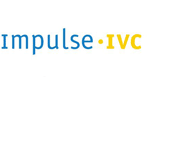Every construction process consists of entities that implement it. But the main role in the direct construction of buildings or structures is also the contractor. It is the
construction contractor who performs all the tasks set by the customer for the technical execution of works. The function of the contractor -
construction production management is very complex and responsible. The management of the contractors, as a rule, is very serious about fulfilling their responsibilities, depending on the level of commercial profits and the ability to receive new orders.

Consider the main functions that a
construction contractor assumes during the construction of a building:
- Carrying out construction and installation works according to the customer's tasks and within the budget, taking into account the calendar plan in construction;
- providing the construction site with all necessary materials, equipment and personnel (unless otherwise specified in the agreement);
- timely informing the customer about the progress of work, especially in case of need to increase the estimate, identify deficiencies in construction materials;
- construction production management;
- organization supply in construction;
- transfer of works to the customer;
- Honest compliance with all legal requirements during construction.
The
construction contractor assumes the above authority in accordance with the agreement he enters into with the developer. Moreover, if the specified agreement allows, the contractor receives broad powers to spend the estimated money for certain purposes. Thus, the contractor may involve third construction organizations in order to perform certain types of work. In this case, the
construction contractor receives the status of general contractor, and the one who is hired additionally becomes a subcontractor. This situation is quite common in large sites, where the required services can not be provided by individual construction companies, but it is necessary to make a
draft works
Construction Production Management
In the process of construction work, which involves the direct erection of structures, the
construction contractor performs the functions of managing this process. The implementation of these functions in the general case is provided by an agreement between the construction contractor and the developer.
Construction Production Management involves the contractor performing the following tasks:

- providing access to the construction site by a representative of the customer or state control bodies;
- introduction of own construction control over the processes on the construction site, paying special attention to compliance with the requirements of technical regulations and design documentation;
- constant control over the quality of construction materials used in the construction of buildings;
- current accounting, preparation of organizational and administrative documents (used ITS accounting);
- informing construction participants and other bodies about the completion of certain stages or the entire facility;
- promptly eliminate all identified deficiencies during construction and transfer of work to the customer;
- Immediately notify the competent authorities and the developer of accidents that occur on the construction site.
The
construction contractor has a fairly broad authority to conduct its business and this helps it to perform its functions. Management and
Construction Economics, which is implemented in accordance with the requirements of the regulatory framework helps to reduce the time of work and thus reduces
Estimated cost.
Transfer work to customer
After fulfillment of all requirements of design tasks according to the estimate and the set technical tasks the constructed object has to be transferred in the established order from the contractor to the customer. Given the great complexity of the work, their significant volume and duration,
transfer of work to the customer in construction is also a separate process regulated by state regulations.
Transfer of works to the customer is one of the stages of construction, which is clearly regulated by the state. The specified process is considered completed after signing of the corresponding act. This act is drawn up by the contractor with the obligatory participation of the developer's representatives. Its content is extremely important, because in case of further misunderstandings, the act of acceptance of the object will be the main evidence in court. This is especially true if the erected building has certain technical shortcomings. The process of signing the act must be prescribed in the agreement between the customer and the contractor, its date is determined with regard to the
calendar plan in construction.
The transfer of works to the customer can take place both bilaterally and unilaterally. This is possible in case of emergencies.
Construction Supplies
Technologically, the process of erection of buildings or structures is quite complex, as it involves constant costs of building materials.
Construction Supplies is intended to replenish these stocks in a timely manner. The largest elements used are cement mortar and building materials (bricks, building blocks). Moreover, given that construction work can be carried out around the clock or in several shifts
supply in construction materials should be carried out with the same frequency. The volume of deliveries of construction materials, their quality and the order of delivery to the construction site is fully determined by the construction contractor. It is necessary to have backup sources of
supply in construction of materials, preferably from several places at once.
Construction Supplies must meet the following requirements:
- continuity;
- formation of reserves;
- delivery with optimal logistics;
- Provide the construction site with everything you need based on the construction schedule.
 Consider the main functions that a construction contractor assumes during the construction of a building:
Consider the main functions that a construction contractor assumes during the construction of a building:



